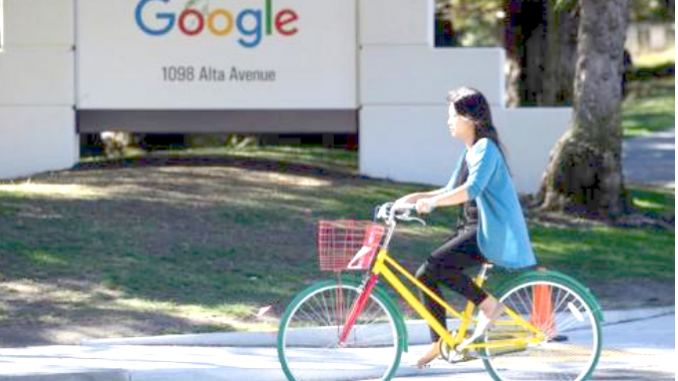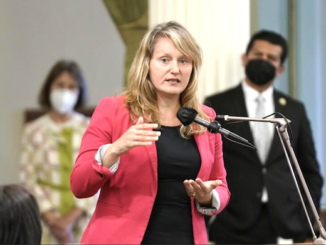
Google has killed a pair of bills that would have forced the company and other tech giants to pay news companies for using their stories.
The state and the tech companies would pay a combined $250 million over five years, with the money distributed by the UC-Berkeley journalism program. Google’s share would be, at most, $105 million.
In the first year, the plan is to distribute $100 million. In the second, third and fourth years, the amount would be $37.5 million. After that, the money runs out.
Google would contribute $15 million to the UC-Berkeley fund in the first year and $10 million to $20 million in each of the following four years. The company would also give $10 million annually over five years to other, unspecified journalism programs.
The Bureau of Labor Statistics reports that about 5,000 Californians call themselves journalists. Who qualifies as a journalist hasn’t been determined.
An undetermined portion of the $250 million would go into an AI research program.
The money would be distributed by a seven-member board that allocates money to news organizations based on the number of journalists employed by each outlet.
The settlement kills two bills Google had opposed:
• AB886, which would have required Google and Meta to share with newspapers, TV stations and news websites their advertising revenue stemming from the news they redistribute on their platforms.
• SB1327, which would have imposed a 7% tax on internet advertising, with the proceeds going back to news organizations.
“This agreement represents a major breakthrough in ensuring the survival of newsrooms and bolstering local journalism across California — leveraging substantial tech industry resources without imposing new taxes on Californians,” Gov. Gavin Newsom said in a statement. “The deal not only provides funding to support hundreds of new journalists but helps rebuild a robust and dynamic California press corps for years to come, reinforcing the vital role of journalism in our democracy.”
Wicks’ office didn’t immediately answer questions about specifics on how much funding would come from the state, which news organizations would be eligible and how much money would go to the AI research program.
The deal effectively marks the end of a yearlong fight between tech giants and lawmakers over Wicks’ proposal to require companies like Google, Facebook and Microsoft to pay a certain percentage of advertising revenue to media companies for linking to their content.
The bill, modelled after a legislation in Canada aiming at providing financial help to local news organizations, faced intense backlash from the tech industry, which launched ads over the summer to attack the bill. Google also tried to pressure lawmakers to drop the bill by temporarily removing news websites from some people’s search results in April.
“This partnership represents a cross-sector commitment to supporting a free and vibrant press, empowering local news outlets up and down the state to continue in their essential work,” Wicks said in a statement. “This is just the beginning.”
California has tried different ways to stop the loss of journalism jobs, which have been disappearing rapidly as legacy media companies have struggled to profit in the digital age. More than 2,500 newspapers have closed in the U.S. since 2005, according to Northwestern University’s Medill School of Journalism. California has lost more than 100 news organizations in the past decade, according to Wicks’ office.
The agreement is supported by California News Publishers Association, which represents more than 700 news organizations, Google’s corporate parent Alphabet and OpenAI. But journalists, including those in Media Guild of the West, slammed the deal and said it would hurt California news organizations.
State Sen. Steve Glazer, who authored a bill to provide news organizations a tax credit for hiring full-time journalists, said the agreement “seriously undercuts our work toward a long term solution to rescue independent journalism.”
State Senate President Pro Tempore Mike McGuire also said the deal doesn’t go far enough to address the dire situation in California.
“Newsrooms have been hollowed out across this state while tech platforms have seen multi-billion dollar profits,” he said in a statement. “We have concerns that this proposal lacks sufficient funding for newspapers and local media, and doesn’t fully address the inequities facing the industry.”



If newspspers don’t want their stories stolen by Google and Facebook, they csn literally flip a switch that stops those companies from tsking their content. But the newspapers want Google and Facebook to distribute their content to get a larger audience. The news industry’s approach to this is hypocriticall.
Newspapers want their content distributed to larger audiences but they want to be compensated for it. In the old days early online services like AOL and professional info services like Lexis-Nexis and Dow Jones paid content providers (and system operators for bulletin boards) a percentage of revenues to keep and retain larger audiences.
If you followed the way Google and Facebook “partner” with publishers and etailers, their bias is obvious in their skewed results and becoming worse now that their McKinsey consultants tell them to deliver worse search (less precise) search results to “keep people on their search pages longer” –aka wasting OUR time.